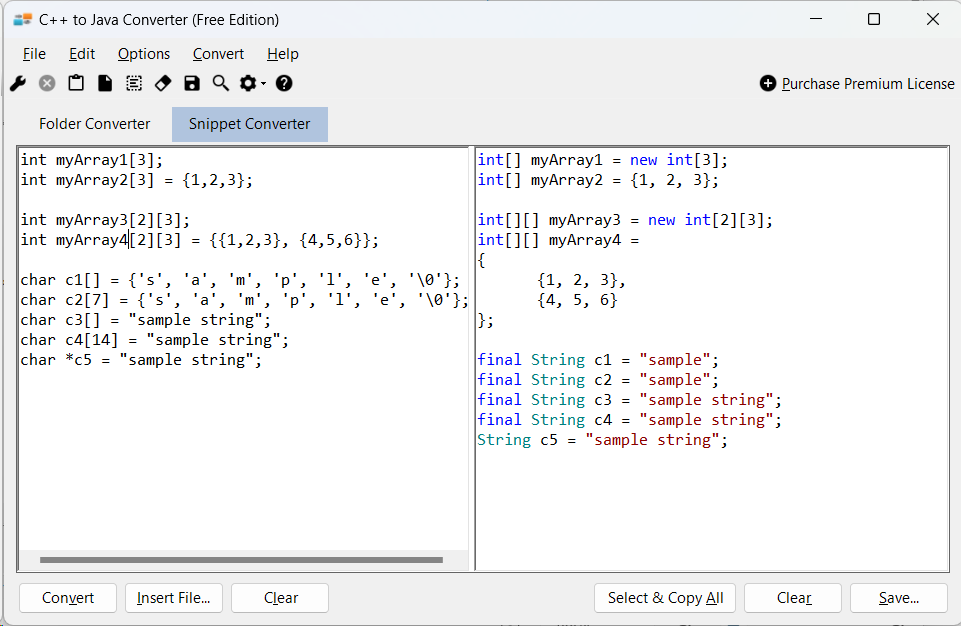- C 2b 2b To Java Converter For Mac Download
- Java Games Converter
- Lake Worth 2b 2b Condos
- C 2b 2b To Java Converter For Mac Free
The document converter library auto-detects source document format and gives you all the control to convert either the whole document or specific pages to the desired output format. It’s easier to replace missing fonts with preferred ones and add text or image watermarks to any document page. C is a middle-level programming language developed by Bjarne Stroustrup starting in 1979 at Bell Labs. C runs on a variety of platforms, such as Windows, Mac OS, and the various versions of UNIX. This C tutorial adopts a simple and practical approach to describe the concepts of C for beginners to advanded software engineers.
Jan 19, 2012 Convert + to%2B in a string PHP. So I have been debugging a script and a lot of the data being passed into it contained this symbol: '+'. I discovered that if I changed it to%2B that it worked. I know this must be sort of a very basic question but after poking around the PHP documentation, I couldn't find a solution.
First, two big things--the main function and how to compile it, followed bylots of little differences.main function
C++
Java
Compiling
C++
Java
Comments
Same in both languages (// and /* */ both work)Class declarations
Almost the same, but Java does not require a semicolonC++
Java
Method declarations
Same, except that in Java, must always be part of a class, and may prefix withpublic/private/protectedConstructors and destructors
Constructor has same syntax in both (name of the class), Java has no exactequivalent of the destructorStatic member functions and variables
Same as method declarations, but Java provides static initializationblocks to initialize static variables (instead of putting a definition ina source code file):Scoping static methods and namespaces
C++
If you have a class and wish to refer to a static method, you use the form Class::method.Java
All scoping in Java uses the . again, just like accessing fields of a class, so it's a bit more regular:Object declarations
C++
Java
Accessing fields of objects
